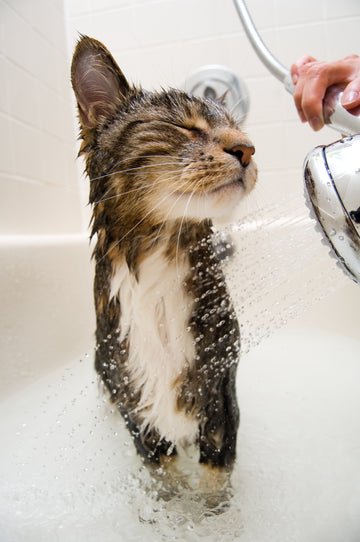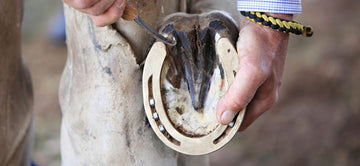
How To Bath Your Cats
First off, we suggest getting organized! Trying to juggle keeping your cat in the bath with one hand and grabbing a bottle of soap from the cabinet with the other can be a difficult task that just adds unnecessary stress to the both of you! So go ahead and grab a few towels, brush, a skid-proof mat (if you have one), Kawell USA's non-toxic pet shampoo, and head to the shower. It is very important that you use feline products because using human shampoo could damage your pet's skin and hair, since it is made with a different PH level.

Before you run the water, we recommend grabbing your cat grooming supplies and brushing your cat to remove any tangles or knots. This is especially important for our cats that have longer hair. You also may want to consider trimming your cat's claws at this time if needed, because if there’s any time you want your cat’s claws to be a little shorter, it’s now!
Next, you are going to want to start running the bath to get the water to your preferred temperature, we suggest making it lukewarm. You have to remember that their skin is just as sensitive as ours so making the water too hot could burn them and too cold could leave them with a chill. It is best to try to control any splashing that may happen while bathing them. Using a pitcher or a cup to pour over their body is great, as well as if you have a detachable shower head. The head of your cat can be a bit tricky to clean, the best way to do so would be to grab a wash cloth since you can control how much water and soap is expelled. As for cleaning their ears, moistened cotton balls work exceptionally well, you can even use them around their eyes and face. You never ever want to stick anything down inside of your cat's ears because this could damage their eardrum.
Once you are finished scrubbing and you’ve thoroughly rinsed your cat, it is important to have the towel ready. After towel drying, if your cat will allow you, you can blow dry them to help them dry faster. It is very important to ensure that your cat is completely dry because damp cats can easily become chilled which can make them unwell, or in the case of kittens, particularly low body temperatures can be life-threatening.
We hope our tips and tricks have been helpful to you and your cat's bathing experience and you’ve remained scratch-free! Being completely prepared before even thinking about turning the water on helps immensely in the whole process. Who knows, you may even be able to teach your beloved cat that baths aren’t so bad after all!










